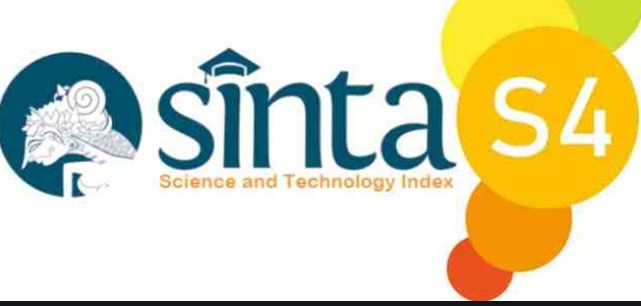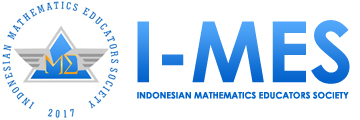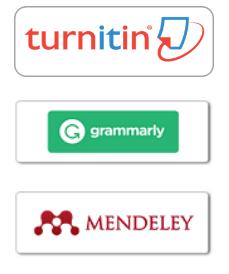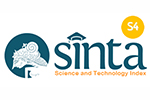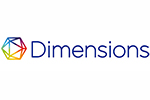TEACHERS' CHALLENGES IN IMPLEMENTING THE DISCOVERY LEARNING MODEL: A QUALITATIVE STUDY IN SECONDARY SCHOOLS
DOI:
https://doi.org/10.36706/jls.v6i2.100Keywords:
classroom management, Discovery Learning, scaffolding, student readiness, teacher challengesAbstract
Discovery Learning is increasingly being implemented in education due to its potential to enhance students' critical thinking and problem-solving skills. However, despite its benefits, teachers face significant challenges in effectively applying this model, particularly in secondary schools. This study aims to analyze the difficulties teachers encounter in implementing Discovery Learning, focusing on lesson planning, assessment, classroom management, student readiness, and resource constraints. This research employs a qualitative approach with a case study method, involving six secondary school mathematics teachers selected through purposive sampling. Data were collected through semi-structured interviews, classroom observations, and document analysis, then analyzed thematically. The findings reveal that teachers struggle with designing structured exploratory steps, developing effective guiding questions, and balancing teacher guidance with student autonomy. Assessment is another challenge, as many teachers still emphasize final outcomes rather than evaluating students' problem-solving processes. Classroom management issues arise due to varying student readiness levels, leading to disengagement and lack of focus. Additionally, limited resources and a rigid curriculum further hinder the effective application of Discovery Learning. This study highlights the need for teacher training on scaffolding techniques, differentiated instruction, and process-based assessment development. Future research should explore the role of technology in supporting Discovery Learning and strategies to enhance student readiness.
Downloads
References
Alfieri, L., Brooks, P. J., Aldrich, N. J., & Tenenbaum, H. R. (2011). Does Discovery-Based Instruction Enhance Learning? Journal of Educational Psychology, 103(1), 1–18. https://doi.org/10.1037/a0021017
Black, P., & Wiliam, D. (2018). Inside the Black Box: Raising Standards Through Classroom Assessment. London: GL Assessment.
Bruner, J. S. (1961). The act of discovery. Harvard Educational Review, 31(1), 21–32.
Darling-Hammond, L., Flook, L., Cook-Harvey, C., Barron, B., & Osher, D. (2020). Implications for educational practice of the science of learning and development. Applied Developmental Science, 24(2), 97–140. https://doi.org/10.1080/10888691.2018.1537791
Hammer, D. (2012). Discovery learning and discovery teaching. Cognition and Instruction, 15(4), 485–529. https://doi.org/10.1207/s1532690xci1504_2
Hmelo-Silver, C. E., Duncan, R. G., & Chinn, C. A. (2007). Scaffolding and Achievement in Problem-Based and Inquiry Learning: A Response to Kirschner, Sweller, and Clark (2006). Educational Psychologist, 42(2), 99–107. https://doi.org/10.1080/00461520701263368
Khasinah, S. (2021). The Implementation of Discovery Learning Model in Teaching and Learning. Journal of Educational Research and Practice, 11(2), 89–104.
Kemendikbud. (2022). Kurikulum Merdeka: Konsep dan Implementasi dalam Pendidikan di Indonesia. Jakarta: Kementerian Pendidikan, Kebudayaan, Riset, dan Teknologi Republik Indonesia.
Mayer, R. E. (2004). Should There Be a Three-Strikes Rule Against Pure Discovery Learning? American Psychologist, 59(1), 14–19. https://doi.org/10.1037/0003-066X.59.1.14
OECD. (2019). PISA 2018 Results: What Students Know and Can Do. Paris: OECD Publishing.
Schraw, G., Crippen, K. J., & Hartley, K. (2006). Promoting self-regulation in science education: Metacognition as part of a broader perspective on learning. Research in Science Education, 36(1), 111–139.
Schunk, D. H. (2012). Learning Theories: An Educational Perspective (6th ed.). Boston, MA: Pearson.
Weimer, M. (2013). Learner-Centered Teaching: Five Key Changes to Practice. San Francisco, CA: Jossey-Bass.
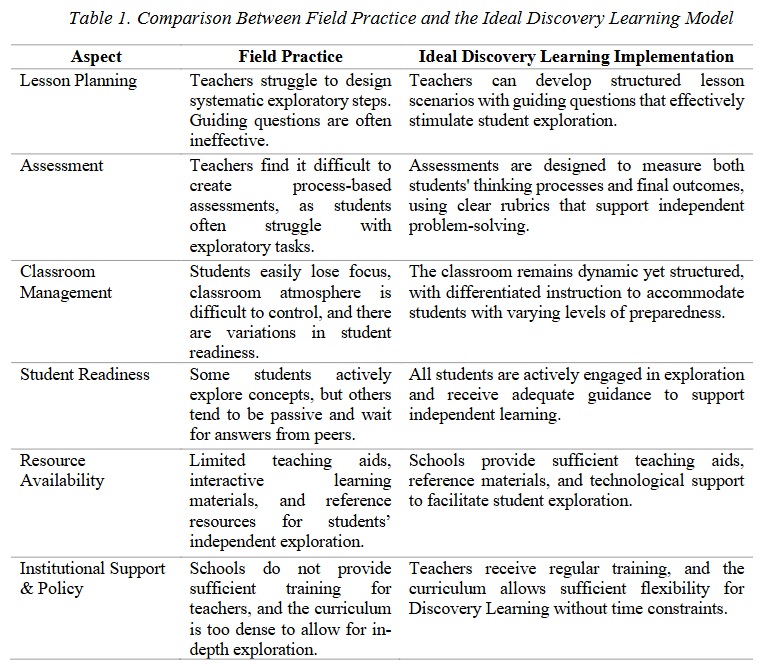
Downloads
Published
How to Cite
Issue
Section
Citation Check
License
Copyright (c) 2024 Luthfiyah Apriani, Wilia Wulandari, Hartatik, Rafi Bagus Adi Wijaya

This work is licensed under a Creative Commons Attribution 4.0 International License.


